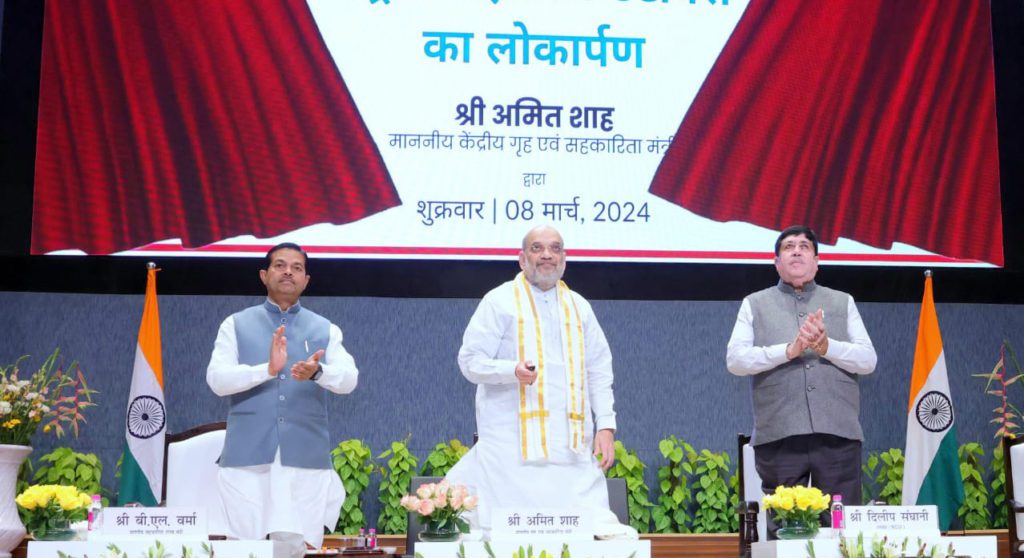Releasing the ‘National Cooperative Database 2023: A Report’ in New Delhi, Union Minister Amit Shah said that today marks a milestone for the cooperative sector, its expansion, and strengthening, as the inauguration of the cooperative database is taking place for the first time since India’s independence.
The most important people of the co-operative sector led by Dilip Sanghani, Bijender Singh, Dr U S Awasthi and others were present on this occasion along with MoS B.L. Verma and Secretary, Ministry of Cooperation, Dr. Ashish Kumar Bhutani, and several other dignitaries.
Lauding NCUI for its contributions to the making of the Database, Shah said that after the plan of computerizing PACS, a challenge arose as they were unsure of gaps and that’s when the idea of this database emerged. The database aims to identify and address the gaps through a comprehensive analysis. He said that the National Database will give direction to the development of the Cooperative sector like a Compass.
Shah added that we are experiencing a new trend in this era – data governance, proactive governance, and anticipatory governance. The synergy of these three leads to the establishment of a new development model.
Amit Shah mentioned that the work on the National Cooperative Database has been carried out in three phases. In the first phase, mapping of approximately 2.64 lakh societies in three sectors, namely Primary Agricultural Credit Societies, Dairy, and Fisheries, was completed.
In the second phase, data from various National Federations, State Federations, State Cooperative Banks (StCB), District Central Cooperative Banks (DCCB), Urban Cooperative Banks (UCB), State Cooperative Agriculture and Rural Development Banks (SCARDB), Primary Agricultural and Rural Development Banks (PCARDB), cooperative sugar mills, district unions, and multi-state cooperative societies (MSCS) were collected/mapped.
In the third phase, data mapping of all the remaining 8 lakh primary cooperative societies in other sectors was carried out. He mentioned that after this, it was revealed that there are more than 8 lakh registered societies in the country, with over 30 crore citizens connected to them.
Shah stated that the database has the potential to connect PACS to Apex, villages to cities, mandis to the
This National Database is created using state-of-the-art technology, featuring a dynamic web-based platform. With the help of this platform, all information about registered cooperative societies across the country will be available at the click of a button.
Amit Shah mentioned that this cooperative database will serve as an invaluable resource for policymakers, researchers, and stakeholders. He added that the authenticity of the data in this database and its regular updates are ensured through a comprehensive scientific system. He assured that the Ministry of Cooperation will ensure that only verified data is regularly uploaded to this database.
The Union Minister of Cooperation stated that after the 1960s, it was felt that there was a need for coordination in the cooperative movement of every state under a national policy. He stated that in the last two years, all Primary Agricultural Credit Societies (PACS) in the country have been computerized, and all states have accepted common bylaws to increase their business.
It has been decided that by 2027, there will be a PACS in every village in the country, said Shah, adding that after 1975, the pace of the cooperative movement in the country slowed down due to geographical imbalances in development. Along with this, across sector imbalance, across community imbalance and functional imbalance also increased. However, tools to address these four issues have been incorporated into this database.
The Minister of Cooperation added that today marks the foundation of a strong cooperative structure that will survive the next hundred and fifty years in the future.
